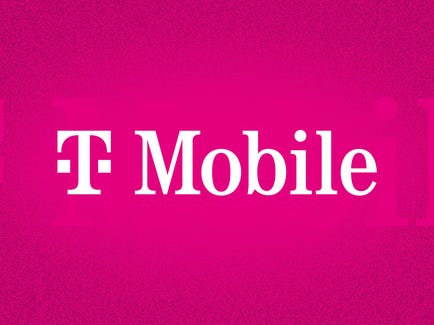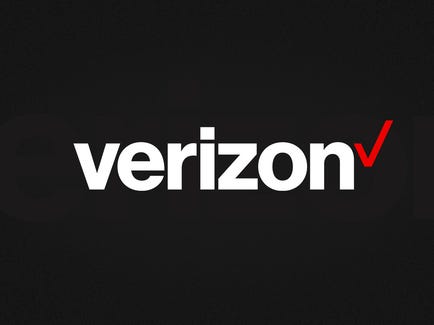Verizon 5G Home Internet vs. T-Mobile Home Internet: Which Mobile Company Should You Trust With Your Home's Broadband?
Both cellular carriers can get your household online with fixed wireless internet service. CNET helps you determine which to choose.


Which is the better internet provider overall?
While Verizon 5G Home Internet may boast a higher maximum download speed, CNET picks T-Mobile Home Internet as the better internet service provider overall, if just by a whisker. Why? Mostly because T-Mobile Home Internet is available in more locations across the country (including more rural areas), allowing internet connectivity to more people.
Rural access is certainly important, but it's not everything. T-Mobile Home Internet and Verizon 5G Home Internet also appeal to urban and suburban customers because they provide competition where there previously might have been none. The best internet provider for you might be the one that caters to your needs and allows you to get out from under your current, underperforming ISP.
We'll aim to give you the key facts on these two providers so you can make a more informed decision yourself. We've compiled exhaustive research looking at speed, pricing, customer care and more to help make your choice easier. Let's look at how Verizon 5G Home Internet and T-Mobile Home Internet match up.
Locating local internet providers
Note: All prices listed on this page reflect available discounts for setting up paperless billing. If you decide not to go with automatic monthly payments, your price will be higher.
T-Mobile Home Internet
Reaches more people and has better coverage
Our take - T-Mobile Home Internet is fairly new on the block: CNET took an early look at the service in February 2021, and it descended upon the country in full in April of that year. Yet, it's got the widest reach of any fixed wireless internet provider. By utilizing its 4G LTE network and the expanding 5G grid, T-Mobile has aggressively expanded its coverage map and offered its service to more households than Verizon's 5G solution. While the average download speed sits between 72-245Mbps, that might be plenty of pep for some customers, especially those in rural areas where satellite and DSL might have previously been the best options.
Verizon 5G Home Internet
Features faster download speeds
Our take - Verizon 5G Home Internet uses ultrawideband 5G technology to deliver max download speeds close to 1 gigabit and average download speeds of 300 megabits per second. That's the fastest average download speed delivered by a major fixed wireless provider. What it sacrifices is coverage, as it's currently available to over 40 million households nationwide. The provider aims to increase that number to reach 50 million by 2025.
Overview of Verizon and T-Mobile 5G home internet plans
| Provider/plan | Max speeds | Monthly price | Equipment fee | Data cap | Contract | Price guarantee |
|---|---|---|---|---|---|---|
|
Verizon 5G Home Internet Read full review | 50-300Mbps download, 5-20Mbps upload | $50 ($35 with qualifying Verizon 5G mobile plans) | None | None | None | 2 years |
|
Verizon 5G Home Plus Internet Read full review | 85-1,000Mbps download, 10-75Mbps upload | $70 ($45 with qualifying Verizon 5G mobile plans) | None | None | None | 3 years |
|
T-Mobile Home Internet Read full review | 72-245Mbps download, 15-31Mbps upload | $60 ($40 for eligible Go5G Plus and Magenta Max mobile customers) | None | None | None | None |
What should I know about 5G before signing up?
5G continues to roll out nationwide, offering millimeter-wave celluar speeds at higher, faster frequencies than 4G LTE. That's great news for our phones and other smart gadgets connecting over cellular airwaves. It could be a game-changer for our homes, too. With the potential for near-gigabit speeds over the air that rival cable and fiber internet service providers -- plus the added appeal of straightforward, consumer-friendly terms that ditch data caps, equipment fees and the like -- 5G is shaping up as one of the most exciting things to happen to residential internet in years.
Locating local internet providers
The first hurdle is whether 5G home internet service is available at your address. 5G signals don't reach everywhere, and you might not be eligible for home broadband service even when they do. Verizon and T-Mobile are the providers doing the most to expand the technology's availability for home internet use. (Note: AT&T recently got into the 5G home internet game with its AT&T Internet Air product.) Both providers offer dedicated 5G fixed wireless home internet plans that promise fast speeds and simple terms at an affordable rate. In some areas, you might even find that your home is serviceable by both, as CNET's own Eli Blumenthal discovered in his quest to replace his cable provider.
Time will tell how much 5G stands to disrupt the ISP category. Let's look at how Verizon 5G Home and T-Mobile Home Internet match up.
Plans and pricing: Verizon 5G Home Internet vs. T-Mobile Home Internet
Are you tired of deciphering which broadband package to choose out of countless options? Wary of signing up for a long-term contract with penalties looming if you don't fulfill it? Sick of sweating it out every month with a stingy data cap? Both Verizon and T-Mobile lean into providing a no-strings-attached broadband experience. Each offers simplified 5G home internet plans requiring no term agreement or data caps.
One small difference you'll notice is there are two choices for Verizon: Verizon 5G Home and Verizon 5G Home Plus. Verizon 5G Home comes with a two-year price guarantee and lower download speeds, while Verizon 5G Home Plus locks in your price for three years, plus higher download speeds and additional perks (see the perks and promos section below).
Which is faster?
While 5G can reach gigabit download speeds, don't expect those top-end numbers from either provider's home internet product. T-Mobile, for example, says on its site that customers can expect "average download speeds in excess of 100Mbps," and typically experience ranges from 72 to 245Mbps. Why so relatively low? T-Mobile Home Internet relies on its growing 5G grid and existing 4G LTE network to expedite its availability. So don't expect a pure 5G experience.
"During congestion, Home Internet customers may notice speeds lower than other customers due to data prioritization," reads the first sentence of T-Mobile Home Internet's general terms. "Service may be slowed, suspended, terminated, or restricted for misuse, abnormal use, interference with our network or ability to provide quality service to other users."
On the other hand, Verizon tells its subscribers to expect average download speeds of around 300Mbps. Verizon's dependence on its Ultra Wideband 5G network (and lesser use of its "4G LTE backup") is the main reason for the faster speeds. It uses low-band, midband and millimeter-wave technology to provide customers with speeds that could get as high as 1,000Mbps.
Where's the best value?
While a cursory glance at the chart above might lead you to believe that Verizon 5G Home Internet is the better buy -- $50 a month compared to Verizon's top plan at $70 a month and T-Mobile Home Internet at $60 monthly -- it's essential to look at the cost per Mbps to better understand the actual value. Considering the average download speed of 100Mbps for that $60 monthly fee, T-Mobile rings in at 60 cents per Mbps, comparable to what you might pay for a midrange cable internet plan. If you have a qualifying Go5G Plus or Magenta Max mobile plan, you could trim that to $40 a month or 40 cents per Mbps.
Verizon 5G Home, which averages 125Mbps, matches that amount at a cost per Mbps of 40 cents. If you choose the Verizon 5G Plus plan, which averages 300Mbps, your monthly bill is $70, but that cost per Mbps goes down to just under 24 cents. You also get additional perks, including a $200 Target gift card and Verizon Cloud Unlimited. Finally, customers with qualifying Verizon mobile plans will get $15 to $25 off the monthly cost of either plan. If you can use that additional discount, it makes Verizon 5G Home -- the regular plan at 28 cents per Mbps and the Plus plan at an even better 15 cents per Mbps -- one of the most affordable out there compared to any cable internet plans by competitors.
What about the fine print?
Let's revisit that idea of the no-strings-attached internet experience. Verizon and T-Mobile are eager to get customers to try their 5G home internet offerings, so no hidden fees or taxes are added to the monthly cost. We mentioned before that there's no contract and no data cap. There's also no additional equipment rental fee, installation fee or other trap fees (although T-Mobile does charge a one-time, $35 activation fee), so it's a win-win for both providers and their customers.
Who can sign up?
The latest Federal Communications Commission data puts T-Mobile Home Internet covering just over 89% of the US population. Note: The latest FCC data is from 2023, coverage may look different.
Neither provider offers a detailed coverage map for its 5G home internet solution. Taking into account the total list of cities they claim to cover and the total number of households, T-Mobile is pretty clearly in the lead here. Still, Verizon closed the gap when it unveiled its 5G Ultra Wideband network in mid-January 2022.
While Verizon 5G Home Internet is available to approximately 40 million homes nationwide, T-Mobile Home Internet reaches over 50 million households in just over 600 cities nationwide. In contrast, Verizon's 5G service is now available in more than 2,700 cities.
Overall, T-Mobile Home Internet has just under 5 million customers (according to a report in the fourth quarter of 2023), while Verizon's latest earnings report puts its subscriber base at just over 3 million. That's a sizeable piece of the broadband pie for both upstart fixed wireless offerings.
Deals and promotions
Still not convinced by the straightforward terms both T-Mobile and Verizon put forward? They'll try to sway you with their promotional offers.
First, T-Mobile and Verizon are so confident in their 5G home products that each offers to pay off any early termination fees for new customers who break their current ISP contract, up to $500 for Verizon and $750 from T-Mobile.
Second, they each offer deep discounts for eligible mobile customers. T-Mobile will shave off $20 monthly for Go5G Plus and Magenta Max subscribers. Verizon trims $15 to $25 off (depending on your chosen plan) for those with select 5G mobile plans.
Additionally, T-Mobile offers new Home Internet customers six months of SiriusXM (worth $66) and 12 months of the streaming service ViX Plus. Finally, all home internet subscribers can use T-Mobile Tuesdays, the company's weekly discount program.
Verizon's perks are tilted toward its 5G Home Plus tier. While subscribers of either plan will get a price-lock guarantee (two years for 5G Home, three years for 5G Home Plus), Verizon 5G Home Plus customers will also get Verizon Cloud Unlimited and a $200 Target gift card.
What do customers think?
We refer to two of the top customer satisfaction surveys within our ISP reviews -- J.D. Power and the American Customer Satisfaction Index -- and they place Verizon at the top of their rankings. Those residential internet surveys are focused on Verizon Fios, a fiber internet service, not specifically the Verizon 5G Home Internet option. The verdict is unclear on the company's 5G fixed wireless internet product.
On the other hand, T-Mobile Home Internet -- which has only been on the market for two years -- was included in the ACSI's 2023 survey results. Impressively, it led all non-fiber ISPs with 73 out of 100, well above the industry average of 68 points.
Anecdotally, one of our CNET writers tested T-Mobile during its pilot program and preferred it over his previous provider, Comcast Xfinity.
Verizon 5G Home vs. T-Mobile Home recap: Too close to call?
T-Mobile and Verizon are still aggressively building their 5G networks, so we're much nearer the story's beginning than the middle or end, especially regarding 5G fixed wireless internet overall.
Regarding these two providers, T-Mobile Home Internet has a slight edge in availability. Adding its 4G LTE network to 5G makes it a much more viable pick, particularly in rural and underserved areas of the country, where it's a compelling alternative to options like satellite or DSL. Verizon 5G Home Internet takes the lead in performance, featuring nearly triple the current download speeds of T-Mobile Home Internet. As such, T-Mobile may have the upper hand now, but Verizon seems poised to provide a higher upside in the immediate future as the best fixed wireless internet in cities where the two overlap.
Verizon 5G Home vs. T-Mobile Home FAQs
Is T-Mobile Home Internet better than Verizon 5G Home?
It depends on how you define "better." T-Mobile Home Internet is available to more households than Verizon 5G Home Internet, so it's got the edge there. Verizon 5G Home boasts a higher average download speed (300Mbps), so it can claim a win in that category. Ultimately, the product that will be best for you is the one that's available at your address and can provide enough download speed to enable your household to do what it needs to do.
Which internet service provider has the best 5G coverage?
Not to sound like a broken record, but it depends on how you define "best 5G coverage." If you're looking strictly at the number of people covered, T-Mobile Home Internet is the ISP with the best 5G coverage. If you're defining "best" by which provider has the better download speed performance, then the winner is Verizon 5G Home Internet. It has a top end of 300Mbps compared to T-Mobile's 245Mbps. Verizon 5G Home Plus is even better, with a maximum of 1,000Mbps in some areas.
Can you work from home using Verizon 5G Home or T-Mobile Home Internet?
Yes. Verizon 5G Home Internet and T-Mobile Home Internet should provide near or above the FCC's broadband speed definition of at least 100Mbps download and 20Mbps upload. Both fixed wireless products, in urban and suburban areas, won't give you as many options as some cable and fiber providers. On the flip side, Verizon 5G Home and T-Mobile Home Internet are cheaper (especially with their mobile discounts) and you'll have the opportunity to try them out at very little risk to see if they'll be adequate for your home office needs.
Are Verizon 5G Home and T-Mobile Home Internet better than fiber?
T-Mobile Home Internet and Verizon 5G Home Internet can't match fiber internet's symmetrical download and upload capabilities. Also, due to the nature of their cellular connections (where 5G home internet customers might find themselves deprioritized to mobile customers on the network), they won't be able to equal fiber's performance reliability. Where Verizon and T-Mobile might have the edge is on availability. The reach of 5G home internet is expanding faster than fiber, so Verizon 5G Home and T-Mobile Home Internet have advantages there.
Home Internet Guides
- Sometimes a provider is available in your Zip code, but not at your exact address
- See what exact plans are available at your home


